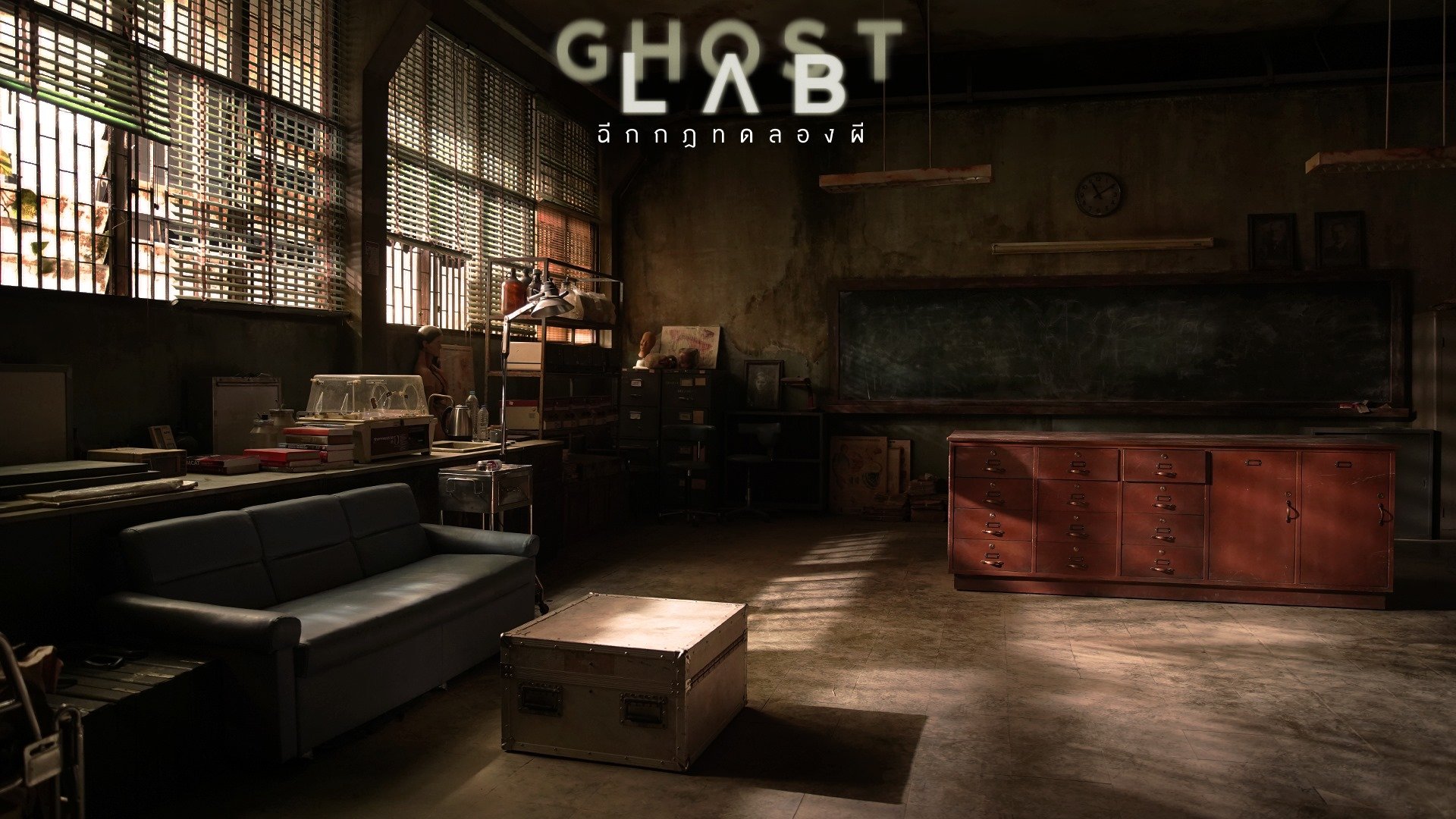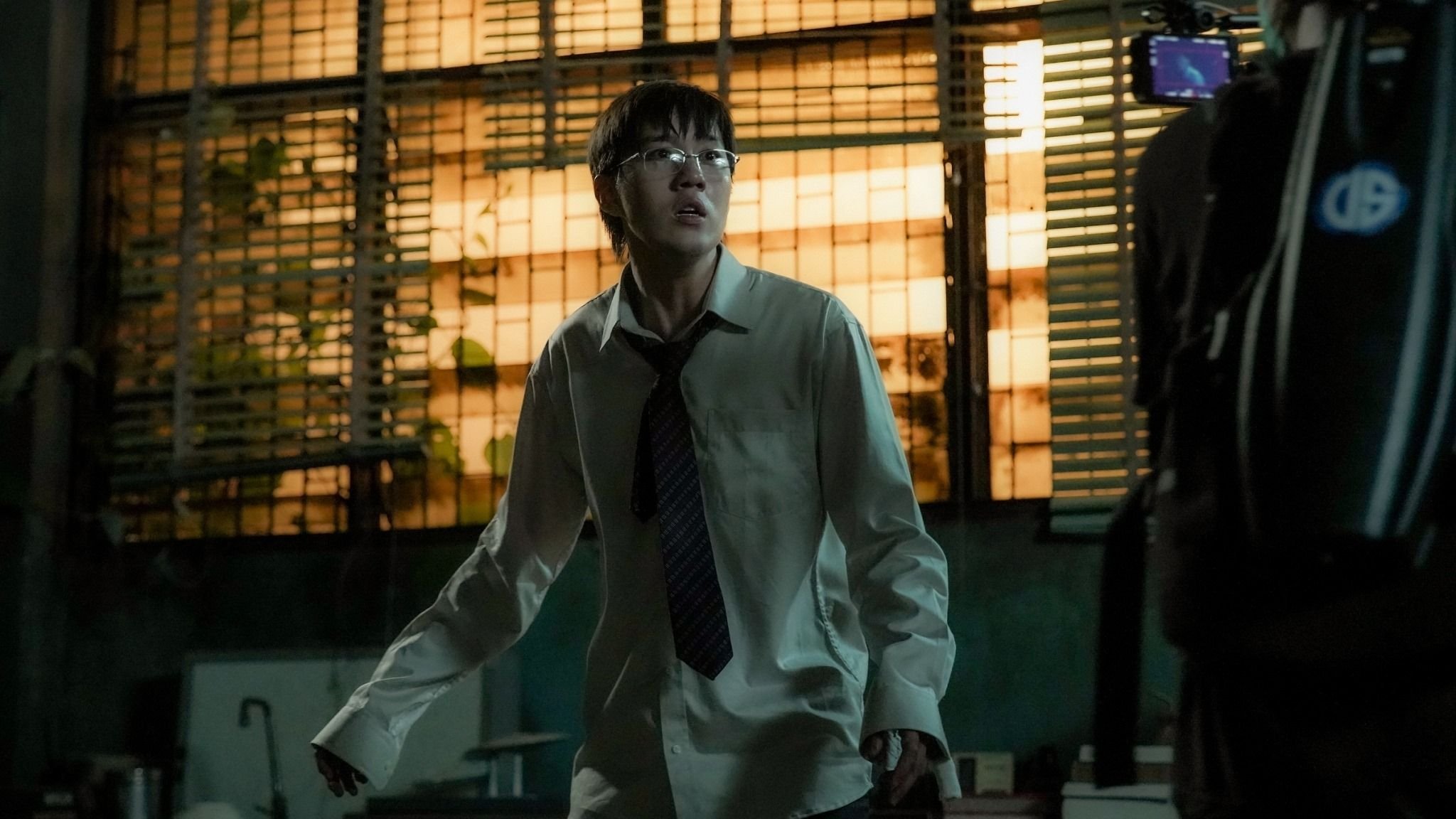Bill Hemstapat
Composer | Music Designer
The composer’s Diary — GHOST LAB
“Part horror movie and part soap opera, “Ghost Lab” is a clunky but amusing vision of death, as unpredictable as grief itself.”
GHOST LAB is one of those odd projects that came together in mysterious ways. By the time that I’m writing this, I had probably been inactive in Thai film industry for about 6 years. (I think?) And frankly, I didn’t really think I was going to come back. While it certainly feels strange from time to time to be Thai and not contributing anything back to the industry back home, the nature of projects I got involved with in the past was just never fulfilling.
I was contacted by a producer at GDH, Kumphol Ariyaviriyanant, saying that they’re working on a film and are interested in having me as a composer. I have to say that on one hand, it’s quite an emotional email to get. As a Thai person, I’ve followed GDH (previously GTH) since I was a kid. The films they made like Season Change, Suckseed, and The Tin Mine were a part of my childhood and have inspired me to be a professional musician that I am today. But on the other hand, it’s a weird email to get. Like I said, I had not been active in Thai film industry in the last 6 years and have never written any scores in the ballpark of their films.
It turns out the director is Paween Purijitpanya, whose works dated back to the earlier days of GDH when they were making a lot of horror films (as supposed to Drama and Rom-Coms which brought them international successes). So my first thought was “ah heck… I don’t watch horror films. I know nothing about the genre. How is this gonna work?”
THE FIRST MEETING
September, 2020
We had our first meeting on Sep 17th, 2020 over ZOOM. This was another weird experience where I thought it was only going to be the director and maybe 1-2 producers. However, I joined the meeting and there I was among 15 people sitting at a long conference room table! I was shocked for a minute but had to keep my calm. Everybody started introducing themselves around the room.
It turns out that Mr. Paween is an avid gamer. He’s a big fan of many PlayStation titles that I’ve worked on. As for how he’s come to know me is also a complete accident. In September of 2019, I went to Tokyo to record Ghost of Tsushima. During that trip, I met up with an old friend of mine, Jaithep Raroengjai, who is a Thai composer based in Tokyo. When the game came out in July of 2020, Jaithep posted on his Facebook congratulating me with a picture of us at a coffee shop in Tokyo that I met with him. Jaithep actually used to work at GDH and has written music for a couple of their films, so the post circulate within his circle of old colleagues which include Mr. Paween himself, who immediately tried to find out who I was, which led to this meeting we were having.
Mr. Paween talked a little bit about the concept of the film and what he wanted the score to be. Since I didn’t really have a concept in mind, I just a listener for the most part.
“How attached are you to your references?”
I said that in the middle of the meeting as the whole room on the other side of ZOOM went silent.
“I just want to say that if you’re looking for something exactly like what you describe or what you’re about to show me in your reference tracks, I’m probably not a man for the job. There are actually many other composers in Bangkok who could write in that genre or do the impression of it much better than I ever could”
Mr. Paween was the first to answer - saying that he himself is looking to experiment just like the characters in his film. He’s really open to new ideas and that it was the reason why he reached out to me in the first place despite having worked with different composers previously. With that in mind, I asked them for a script and told them that I would start sketching some musical ideas over the next few weeks.
FROM First Demos to FINAL CUES
October 2020 - February 2022
After reading the entire script, I was off to the races. There was so much in there that was really exciting to me. A mixture of sci-fi horror as well as the young teenage energy that comes off from the two protagonist felt just like the right combination of ingredients. I spent close to 2 months writing these demos without having seen a single frame of the film. This particular process is so inspiring because you get a chance to workout your muscle and explore the extremes you can go without having what’s going on on the screen to limit where the music can go.
I knew that none of these pieces would ever work in the film, but I did them to explore the palette, the tone, and create the sound world that I the audience can live in. There were about 14-15 pieces written in this phase, but I’d like to share 6 of them that became important ingredients for me scoring Ghost Lab.
Suite Sketch
This suite is meant to capture the essence of mystery, horror, and the grandioso of life/death adventure that the characters are embarking on. While the big melodic idea in the first minute and from 03:04 - 03:32 didn’t really make the cut to the final score (to me it just felt a little too ‘romantic’ now looking back at it), the little combination of my synthesizer and cello from 01:10 to 01:40 ended up being the main “motif” in the final score. The idea behind this was to create a sound that feels almost as if a scientific machine trying to sound an alarm that a ghost (or ghosts) is near by. We actually made a Kontakt instrument out of these just because it really spoke to us as being the main musical device for the film.
You can find some of the cues that are derived from this suite in the soundtrack album: First Contact, Hypothesis = True, Hazardous Complication.
Science Exploration
The other pillar of the story that I wanted to explore is what “science” may sound like in this film. One area that I find really interesting about this film is the concept of their “science lab” being is almost anti-futuristic. As suppose to modern films where these would be modern labs with high-end equipments and people wearing gowns, this lab is a makeshift lab utilizing an old classroom with chalkboard and very old retired hospital equipments. There is a certain old-school classicism vibe to all of this which lead me to going down a more organic and vintage route for the sound with a mix of many pianos, woodwinds, strings, vintage inspired synths and drum machines.
SYNTH DESIGNS
One other element that I wanted to address with my music is the “young” energy that this has to come off. These 2 protagonists are young ambitious and insanely talented doctors that are supposedly wise beyond their years. After a little bit of experimentation, I felt like I could address this without my synthesizer design - combining the gritty, uncontrollable, and almost soviet union test equipment-like sound with modern trap/RnB beats and 808 normally heard in popular music. These sketches reflect that very combination and were very well received by Mr. Paween.
These materials were then developed to be actual cues found in the film and soundtrack album called: I’m In, Data Collecting, and Identifying Variables
THE MAIN THEME
After writing so many pieces, I felt like I still didn’t find the right melody that really spoke to the film. We’re deep into November now and the first rough cut of the film has just shown up in my inbox. This really changed everything. Getting to see the actors, the mood and tone of the set, and many other things really gave a lot of clarity to what the film is. One thing that really stood out to me was the love that our main protagonist “Vee” has for his mother. While it wasn’t quite explicitly clear in the script, after seeing the film, I figured that this is it, this is the heart of the film. He’s going through all this crazy journey because he wants to see his mother again.
Love, especially love for our maternal figure is such a simple and powerful unconditional thing. I felt like I had been lost in the complicated synth textures and crazy aleatoric horror land for the last 2 months. I need to now come up with something very simple, something that would speak to everybody who has a mother and can sympathize with the crazy act our main character is about to pull.
When I first played this for Mr. Paween - it spoke to him right away. We agreed that this is the very heart of the film and he was glad that I’ve finally found the missing piece. He also noted that it felt like a perfect balance between the Hollywood sound and the Asian Cinema sound, which is where he wanted this film to sit in the grand scheme of the film market.
This became the main theme for Ghost Lab and was developed to a main driving force for cues like: Her Last Breath, The Experiment, At What Cost, Northern Lights, and Belief (End Credits)
GHOST LAB (Original Motion Picture Soundtrack) is available now on all streaming platform:
CONTRIBUTORS
Music Composed and Produced by Bill Hemstapat
Additional music: Satta Rojanagatanyoo & Steph Kowal
Trailer Music: Dylan C. Jones
Cello Soloist: Ro Rowan
Additional percussion Designer: Arthur Hnatek
Score mixed by Phil McGowan
Soundtrack Album mastered by Dylan C. Jones




